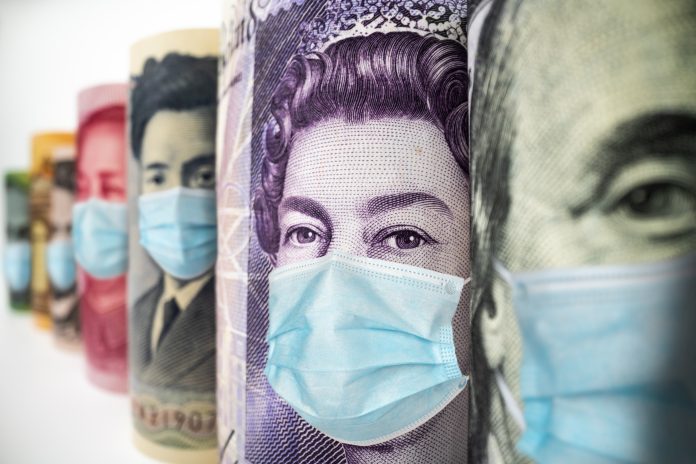Gordon Mole, Head of Business and Employability at Fife Council and a Director of the Institute of Economic Development, shares his thoughts on reviving the UK’s local economies in light of COVID-19
In the context of a global pandemic and where our nightly news has been dominated by briefings from Westminster, it is easy, perhaps, to forget that the economic
impacts are also a story of nations and regions.
Scotland
For Scotland, it is easy to see a small nation with a uniform economy. COVID-19 has reminded us that this is far from being the case and each Scottish region, and locality is faced with a varying set of specific challenges as we in the economic development profession seek to provide support to businesses large and small.
From the layering of the pandemic and a record low oil price in the North-East of Scotland; to the challenges of Tayside soft fruit producers in recruiting teams for the summer harvest; the cancellation, for the first time since they began, of the Edinburgh Festivals; and the halting of major construction projects across the Central Belt, businesses are being affected in ways we never thought we would see in our professional lifetimes.
As lockdown eases, we now face planning for recovery whilst still very much in response mode, delivering critical support for communities and businesses with an immediate focus on their survival. As with other regions across the UK, smaller businesses’ resilience and cashflow are being tested to its limits as firms continue to have their doors closed. So, as minds turn to recovery, what are some of the key features which will aid us in reframing our strategic and operational plans to renew our local economies?
SME manufacturing
Firstly, any bounce-back will be led, initially, by a limited number of sectors. Scotland’s retention of a strong SME manufacturing base has allowed companies to remain agile and turn to provide essential supplies to the national COVID-19 response. With much of the sector having adapted and back working, economic development response now needs to turn to support innovation in manufacturing and building sustainable, UK-based supply chains. At the other end of the spectrum, Scotland’s strong and continued growth in tourism has come to an abrupt halt. With an earlier summer season than other parts of the UK and major events cancelled or postponed, the need to develop a new focus on the domestic tourism market will be a key challenge for councils and regions.
Construction
Secondly, any difference in approach across the UK nations risks relative disadvantage, for example, in the construction sector, where Scottish firms supplying labour and equipment will be less able to fulfil, secure and develop contracts for work across the wider country. The public sector will need to ensure that demand is stimulated through early work on publicly-funded projects and programmes, such as those funded through City Region Deals, and clear the path for new development through clear links between spatial and economic strategies.
Sustainability
Thirdly – whilst we should expect an uneven restart of the economy, across different regions and nations of the UK, and particularly between sectors – we must not lose sight of the key drivers of economic change which were developed pre-COVID-19, including commitments to inclusive and sustainable growth. With its strong focus on low carbon and renewables and commitments to ensuring through education and skills interventions that ‘No One is Left Behind’, a focus on inclusion and climate must be at the core of recovery, not an afterthought.
Through the IED-led Commission for Economic Renewal (see sidebar), and commissions being led by Scottish Government and mirrored at the local level, Scotland’s economic development professionals, along with those in other UK regions can, and will, play its part in the nation’s restart, recovery and, ultimately, renewal.
Rebuilding economies in the wake of the COVID-19 pandemic
The Institute of Economic Development (IED) has launched the Commission for Economic Renewal, bringing together some of the UK’s foremost economic development practitioners and academics to formulate the policies and interventions it believes will be needed to rebuild economies in the wake of the COVID-19 pandemic.
Following discussions with officials representing the Ministry of Housing, Communities and Local Government (MHCLG) and Department for Business, Energy and Industrial Strategy (BEIS), the Institute is facilitating economic recovery by exploring potential interventions. The Commission is set to report in Autumn 2020.
Drawing on analyses of impact (by sector and geography), the Commission will consider the types of interventions that are most likely to prove effective, represent value for money for the public purse, and have the potential to achieve positive social and environmental change outcomes. Amongst other subject areas, this will include infrastructure needs, support for research and innovation, general business support, the future for higher education and further education, support for particular sectors and support for specific local economies.
IED Chair Bev Hurley said: “We are delighted to launch the Commission for Economic Renewal and respond so swiftly to the economic issues and challenges that are affecting our members and the country more widely resulting from COVID-19. We are keen to make a contribution to the formulation of policies and interventions that might be adopted by the Government, devolved administrations and others in seeking to revive the economy at different spatial levels. Discussions with MHCLG and BEIS officials have encouraged this approach and invited our contribution to their deliberations, but our work is not driven or constrained by political considerations. The Commission is entirely independent and designed to make a genuine impact on the UK’s economic renewal.”











